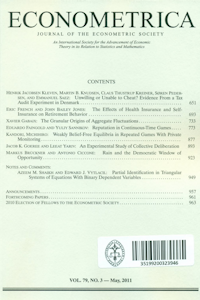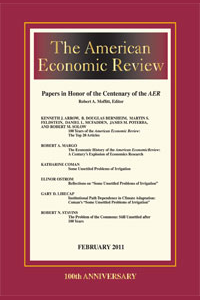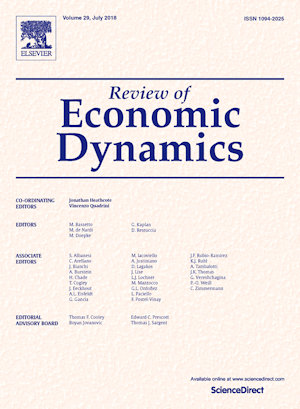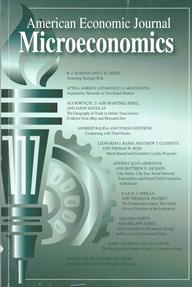
Esteban-Pretel, J. and Faraglia, E.
Monetary shocks in a model with skill loss
Journal of Money, Credit and Banking
Vol. 42(7) pp. 1235-1265 (2010)
Abstract: Unemployment shows persistent and long-lasting responses to nominal and real shocks. Standard real business cycle models with search frictions but a homogeneous labor force are able to generate some volatility and persistence, but not enough to match the empirical evidence. Moreover, empirical studies emphasize the importance of the heterogeneity of the unemployment pool to fully understand unemployment dynamics. In particular, in most European countries the incidence of long-term unemployment is large and well known. One of the possible causes/consequences of long-term unemployment is the skill deterioration of the unemployment pool. In this paper, we introduce the skill loss mechanism, and therefore a heterogeneous labor force, in a New Keynesian framework with search frictions. Calibrating the model for the Spanish economy, we show that while the skill loss mechanism helps to explain the magnitude of the response of unemployment to monetary shocks, it does not improve the performanc
JEL Codes: E32, E52, J31, J41
Author links: Elisa Faraglia
Publisher's Link: http://onlinelibrary.wiley.com/doi/10.1111/j.1538-4616.2010.00340.x/abstract ![]()




